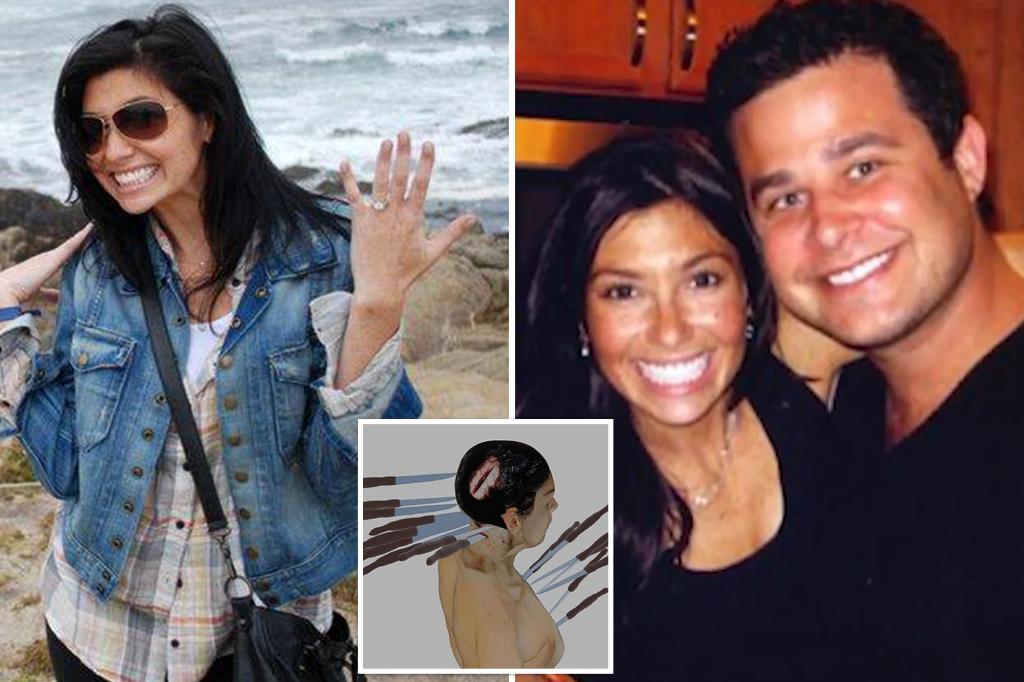The baffling case of Ellen Greenberg, a 27-year-old Philadelphia teacher, continues to haunt her parents, Dr. Josh and Sandee Greenberg, who relentlessly pursue justice for their daughter’s death, officially ruled a suicide despite the presence of nearly two dozen stab wounds. The Greenbergs’ unwavering belief that Ellen was murdered has led them through a labyrinthine legal battle against city officials and the medical examiner’s office, whom they accuse of a cover-up. A recent court hearing provided a glimmer of hope, as the judge acknowledged the puzzling nature of the suicide ruling, offering a “fighting chance” to the Greenbergs’ quest for truth.
The events surrounding Ellen’s death on January 6, 2011, remain shrouded in mystery. Found in her Manayunk apartment kitchen with 20 stab wounds, a knife in her chest, and a half-finished fruit salad on the counter, the scene presented a perplexing picture. Her fiancé, Sam Goldberg, claimed to have discovered her body after returning from the gym, breaking down the door to enter. However, the hour preceding his 911 call reveals a series of increasingly frantic texts and calls to Ellen, raising questions about the timeline and the circumstances leading to her death. The initial ruling of homicide by the city medical examiner, Dr. Marlon Osbourne, was later reversed to suicide after a closed-door meeting with police, a decision that lies at the heart of the Greenbergs’ legal challenge.
The Greenbergs’ 2022 lawsuit alleges a “concealed conspiracy” to disguise Ellen’s homicide as suicide. They assert that the investigation was grossly mishandled, pointing to the professional cleaning and sanitization of the crime scene before detectives could process it with a search warrant. Adding to their suspicions, Goldberg’s uncle, a prominent Pennsylvania judge, was allowed access to the apartment, removing personal belongings, including Ellen’s computer and cellphone. These irregularities fuel the Greenbergs’ conviction that crucial evidence was tampered with or destroyed, obstructing the pursuit of justice.
The December 11 court hearing marked a significant milestone for the Greenbergs, who, for the first time, heard legal arguments presented in their daughter’s case. Judge Michael Erdos acknowledged the perplexing nature of the suicide ruling in light of the crime scene discrepancies. While dismissing one defendant, a pathologist brought in years later to examine a preserved spinal column section, the judge requested further briefing from the Greenbergs’ attorney to demonstrate intentional infliction of emotional distress by the remaining defendants: Osbourne, former Chief Medical Examiner Sam Gulino, retired Homicide Sgt. Tim Cooney, and Homicide Det. John McNamee. This requirement highlights the legal challenge of proving not just recklessness, but deliberate intent to cause emotional harm.
Fueling the Greenbergs’ suspicions are external opinions that cast doubt on the suicide ruling. Several forensic pathologists, crime scene experts, and former law enforcement officials have questioned the official narrative. Even Goldberg, in his first public statement about Ellen’s death, acknowledged the bewilderment surrounding her supposed suicide, describing her as a “wonderful and kind person who had everything to live for.” He also alluded to “pathetic and despicable attempts” to tarnish his reputation and distort the truth, implying a belief in a narrative that deviates from the official ruling. This statement, while seeming to support the suicide ruling, indirectly points to a perceived smear campaign, further muddying the already murky waters of this case.
The autopsy report itself raises disturbing questions. Ellen’s 20 stab wounds, including 10 inflicted from behind – at least one possibly post-mortem – and bruises in various stages of healing, suggest a history of physical abuse, a theory supported by her father. Renowned forensic pathologist Dr. Cyril Wecht, in his independent review, deemed the evidence “strongly suspicious of homicide,” further bolstering the Greenbergs’ position. Counter to the suicide narrative, Ellen’s psychiatrist had diagnosed her with anxiety but noted the absence of suicidal ideation. This crucial piece of information seemingly undermines the official explanation for her death, prompting the Greenbergs to fight for a corrected death certificate, a separate legal battle pending before the Pennsylvania Supreme Court. The Greenbergs’ relentless pursuit of justice continues, driven by a profound belief in their daughter’s story and a determination to uncover the truth, regardless of the obstacles they face.

